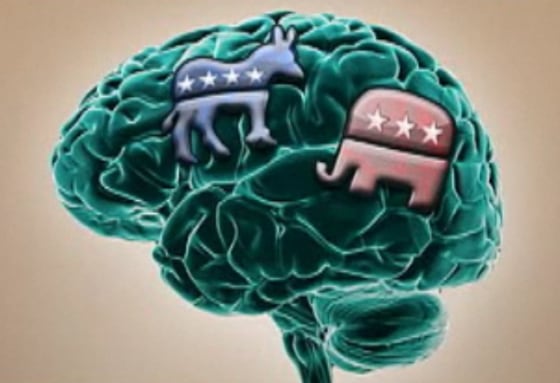
New Research Uncovers Profound Distrust of Science Among American Conservatives
A pioneering new study has illuminated the level of skepticism towards science prevalent among conservatives in the United States, uncovering a widespread distrust that goes beyond typical ideological battlegrounds such as climate change and evolution. Published in the esteemed journal Nature Human Behaviour, the study presents a concerning depiction of increasing political polarization in public perceptions of science—and emphasizes the challenges involved in reversing this trend.
Grasping the Extent of the Distrust
In contrast to previous beliefs that conservative skepticism was limited to specific contentious spheres, such as climate policy or evolutionary science, the research revealed that distrust among conservatives encompasses all areas of science. By surveying a nationally representative group of nearly 8,000 Americans, researchers sought participants’ trust levels in 35 distinct scientific professions. The outcomes were striking: self-identified liberals exhibited significantly greater trust in scientists across every field, from climate science to physics, compared to their conservative counterparts.
This indicates that even in disciplines typically associated with conservative values—like engineering, industrial chemistry, and economics, which usually prioritize productivity and economic advancement—the trust discrepancy was evident. “These disciplines emphasize economic progress and productivity,” stated Bastiaan Rutjens, a psychologist from the University of Amsterdam and one of the study’s authors. “Yet, it is notable that even in these domains, conservatives exhibit reduced trust. Their skepticism extends across the scientific spectrum.”
Origins of the Distrust
The findings are built on prior research highlighting declines in science trust among conservatives since the 1980s. According to the researchers, this widening gap reflects more than just resistance to science that contradicts religious beliefs or political convictions. It indicates a deeper cultural issue, where science is increasingly viewed as partisan or ideologically skewed.
“Some circles increasingly dismiss science as a ‘leftist pastime’ and universities as bastions of the leftist establishment,” Rutjens remarked. These perceptions have likely fueled the characterization of science not as an impartial quest for truth, but rather as a reflection of liberal ideology—resulting in many conservatives perceiving scientific consensus as fundamentally dubious.
Unsuccessful Efforts to Bridge the Divide
In a bid to combat this skepticism, the study’s principal researcher, PhD student Vukašin Gligorić, along with his team, evaluated five communication strategies intended to connect science with conservative principles. These approaches included highlighting conservative scientists, showcasing how science upholds traditional values, and underscoring the role of scientific innovation in enhancing economic growth.
Nonetheless, none of these strategies yielded a measurable enhancement in conservatives’ trust of scientific professionals. “This indicates that their skepticism is deeply ingrained and not easily altered,” Rutjens clarified.
These findings present a formidable challenge for science communicators and policymakers, especially when public collaboration is vital for tackling pressing issues such as health crises, technological advances, and climate policy. When scientific authority is met with skepticism, societies’ capacity to collectively and effectively address complex challenges is undermined.
Global Consequences of a Widening Divide
Although the research specifically examined the United States, Rutjens alerts that similar trends are beginning to surface in other regions worldwide. For instance, in the Netherlands, public dialogues regarding issues like the COVID-19 response and climate policies have triggered heightened skepticism towards scientific institutions. “Even here… we are encountering unprecedented discussions surrounding science, often accompanied by considerable distrust,” he noted.
These trends highlight the necessity of not perceiving science skepticism solely through an American perspective. As worldwide societies grow more politically polarized, confidence in science—once viewed as a nonpartisan foundation of rational governance—may continue to decline unless significant actions are taken.
Restoring Trust: A Case for Greater Engagement
A crucial insight from the study is that addressing the current deadlock will necessitate more than mere public service messages or targeted advertising campaigns. The researchers contend that superficial measures are unlikely to alter mindsets shaped by culture, identity, and worldview. Instead, they propose that scientists and institutions embark on intentional, long-term engagement with skeptical communities—underscoring how science directly enhances individuals’ lives and aligns with diverse values.
“We require more robust interventions that personalize science,” remarked Rutjens. “What can science bring to your life, in the present moment?”
By reframing science away from purely partisan or political contexts, communicators should strive to present science as a collective, nonpartisan endeavor aimed at the public good. This involves actively listening to concerns, sharing information transparently, and discovering common ground based on mutual objectives—such as economic advancement, public welfare, and national security.
The Path Forward
As polarization intensifies within numerous democracies—including over science-informed policies regarding climate, public health, and education—this study serves as a poignant reminder of the challenges that lie ahead. Mending the divide between science and conservative audiences will require not only strategic communication but also a reevaluation of how science is conveyed, taught,